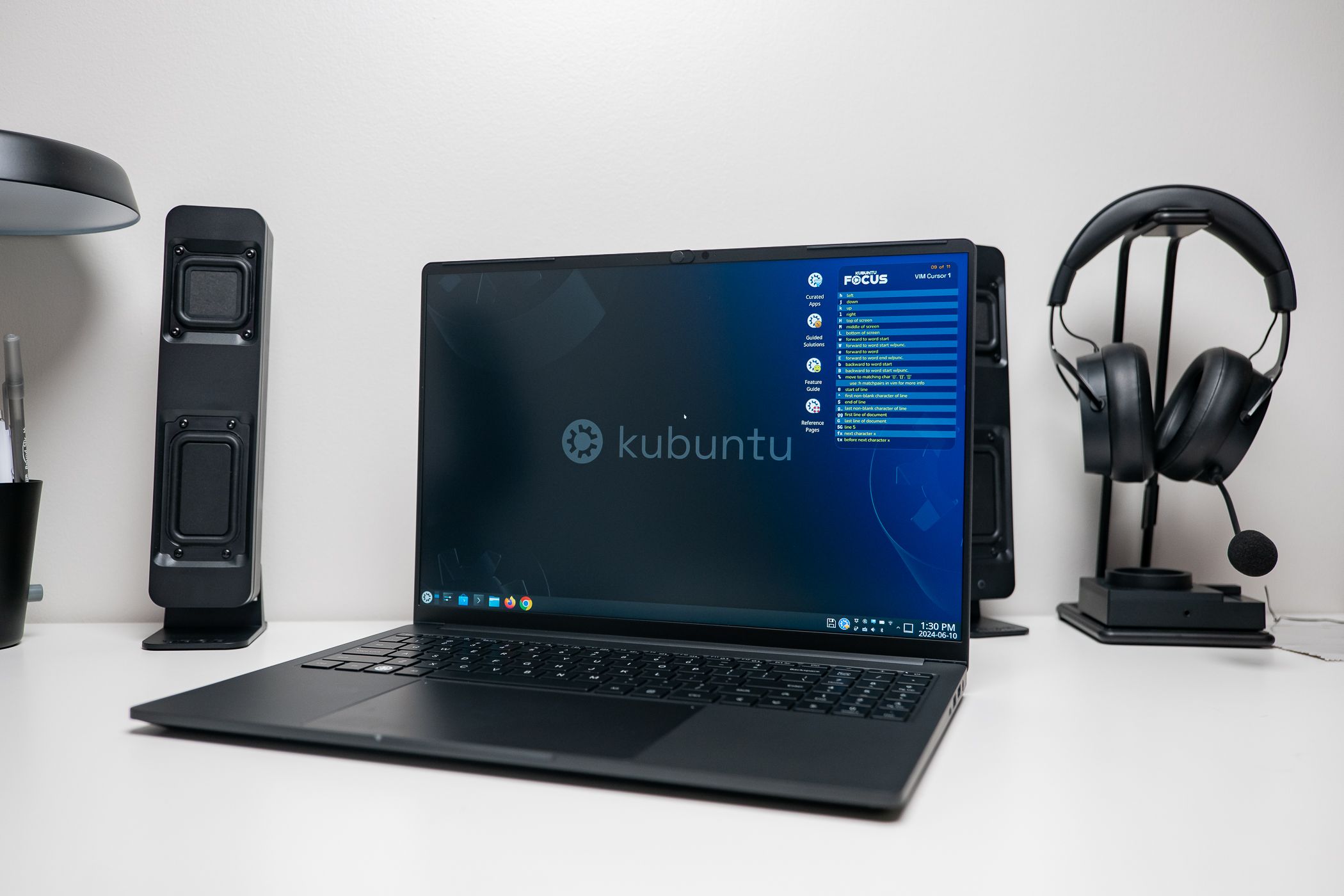
Safeguard Your Privacy From Machine Mayhem by Embracing Open Source Linux Solutions

Safeguard Your Privacy From Machine Mayhem by Embracing Open Source Linux Solutions
Key Takeaways
- Products everywhere are incorporating AI, leading to privacy breaches and creating junk AI output.
- Many generative AI-enabled products record your input and activity, risking your privacy and theft of content.
- Make AI opt-in by switching to Linux. It’s free!
Every other app and service now seems to be tacking on AI functionality to try to entice weary users or satisfy shareholders. Sometimes, AI features work well. Often, it just results in junk output (at least for now) and a privacy nightmare. Here’s how Linux can help you escape the AI apocalypse.
Everyone Is Adding AI to Their Products and Services
I’m no curmudgeon: Generative AI is an awesome new technology, and I think that anyone with the hardware should try hosting their own AI chat bots and image generators to learn how they work and prepare for the future. It’s the haphazard application of AI, without any thought for users, and that makes products worse that I object to. For example:
- Windows Recall: A Windows 11 feature that would have recorded everything you do on screen (including passwords, bank accounts, everything) and then fed it to a chatbot. It was so derided that Microsoft pulled the update containing it (Windows Recall was recalled ).
- Air Canada: An AI powered chatbot for Air Canada told a traveler that they’d be able to get a discounted bereavement fare. The discount did not actually exist. Air Canada was sued, and lost .
- Humane AI Pin: This one wasn’t even an existing product ruined by AI—it’s a device that was specifically designed and built to interact with an AI, and it was so bad it risked randomly catching fire .
This effort to add AI to everything isn’t stopping, despite users’ trepidation. Windows, MacOS, and iOS are all plowing ahead with new AI features, and at no cost to you. This raises the question of how they plan on profiting from it (hint, the answer is probably by monetizing the data you feed to them).
For AI to Work, It Needs to Scrape Your Data
Generative AI isn’t pushing the limits of creativity, it’s just an algorithm that mashes together pieces of data it’s been trained on. That means generative AI needs a constant stream of new information to work with to stay up-to-date.
Initially this was provided by scraping the public internet (arguably stealing real people’s content in the process). But that’s no longer enough, and each AI vendor wants their own unique data that puts them above the competition. And they want it from you.
When you interact with an AI, it records your input. This isn’t so much of a problem when you’re just firing questions at a chatbot for a laugh, but it could be a huge problem when the AI feature is baked into your operating system. If you aren’t careful about what you agree to when an app or system update is installed, or you buy a new device, your activity is potentially being recorded for AI training.
This doesn’t just make AI output unoriginal, It’s a massive privacy issue: how can you be sure some details of your private life that have been submitted to an AI platform won’t be used to generate someone else’s short story, business email, to create images, or just revealed to the public outright ?
Take Control Back By Switching to Linux

Jerome Thomas / How-To Geek
Alright, I’ve kvetched about AI privacy enough, so what can you actually do about it? The answer is pretty short.
Take control of your computing experience by switching to Linux, the 100% free, open-source operating system. Major Linux distributions like Ubuntu and Fedora don’t have any AI baked in, and if they do in the future, you’ll be able to just uninstall it or switch to a different Linux distribution . If you do want to use AI-enabled tools, you can choose to, not be forced to.
The open-source community that develops Linux applications is notoriously privacy conscious, so if your favorite app decides to force new intrusive features on you, you can usually find a safe alternative (for example, LibreOffice is a totally free alternative to Microsoft Office, without online services and AI integrations).
Privacy is more difficult on mobile devices, as there aren’t any widely available open-source mobile phones and tablets. But at least your PC can be your own, private, AI free oasis.
Also read:
- [New] Aurora HDR Reviews Is Aurora HDR a Good Choice ?
- [Updated] In 2024, Earning Potential Steps to Join the YouTube Premium Club
- [Updated] Strategies to Find the Perfect Power Source for Drones
- [Updated] The Synergy of Content and Platform for Peak Performance
- [Updated] Tonal Transition Triumphs for Creative Virtuosos
- [Updated] Transferring Media PC Files To Your iOS Device
- 2024 Approved Tag and Showcase a Podcast Episode
- 2024 Approved Top 10 Most Shared Stock Photos and Their Tales
- 2024 Approved Ultimate Guide on Google Podcast Upload
- 自由下載MOVavi AVI轉換器 - 無成本改變格式的解答
- Boosting Task Manager: Admin Mode on Windows 11
- In 2024, How to Transfer Data from Samsung Galaxy M34 5G to Samsung Phone | Dr.fone
- Unveiling the DJI Spark Compact Drone Mastery for Photographers for 2024
- Title: Safeguard Your Privacy From Machine Mayhem by Embracing Open Source Linux Solutions
- Author: Daniel
- Created at : 2025-02-27 19:58:27
- Updated at : 2025-03-05 18:50:08
- Link: https://some-skills.techidaily.com/safeguard-your-privacy-from-machine-mayhem-by-embracing-open-source-linux-solutions/
- License: This work is licensed under CC BY-NC-SA 4.0.